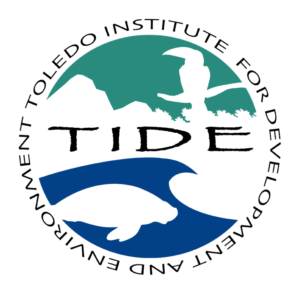TIDE surveys coral reef habitats in Port Honduras Marine Reserve (PHMR) to continually assess the health of the ecosystem by monitoring the effects of nutrient and sediment loading on corals from riverine pollution by monitoring changes in macroalgal cover. Fish biodiversity is also monitored to assess the effectiveness of implementation of fisheries regulations. Surveys are conducted using the Mesoamerican Barrier Reef Survey (MBRS) protocol with some components of the Atlantic and Gulf RAGRRA annexed to make outputs compatible with data collected in other regions by other organisations in either format. Results are contributed to the Healthy Reefs Initiative Annual Report Card. Each area assessed is given a rating from very good to critical in the Report Card.
TIDE’s marine research team has been conducting coral reef monitoring in Port Honduras Marine Reserve (PHMR) for the for a 10-year period. The aim of the international survey is to assess and compare the health of coral ecosystems across the region. The marine research team goes out biannually to collect data using both transect and rover surveys to monitor 100+ fish species. The team notes the presence of juvenile fish, adult fish, sea urchins, healthy coral and bleached coral abundance.
Results in 2014 have shown an increase in both live and dead coral in PHMR and certain fish species, such as striped parrotfish and yellow tailed snapper, are found to be more abundant in protected Replenishment Zones (RZ) than the General Use Zone (GUZ). This information shows that marine conservation in PHMR is positively benefitting certain species.
The annual MBRS survey is a very important tool used by scientists and policy makers to continuously monitor the health of Belize’s Barrier Reef to ensure it remains well protected. The most recent Healthy Reefs Report Card from 2012 (which includes PHMR) is publically available. The 2014 Report Card will be available in early 2015.
